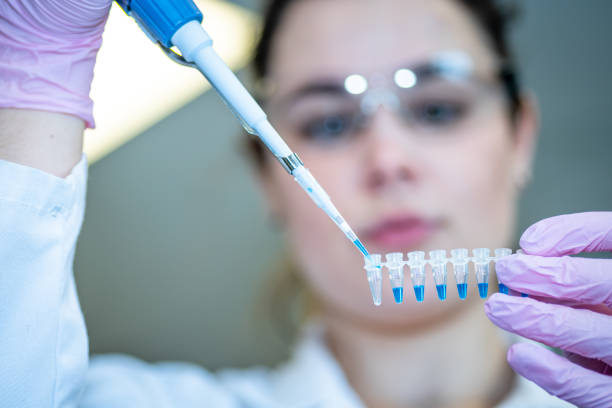
How to Know if You Need Testosterone Therapy: Symptoms & Diagnosis.
Posted by on 2024-01-05
Testosterone, a hormone primarily associated with male development, plays crucial roles in maintaining various physiological processes such as bone density, fat distribution, muscle strength and size, red blood cell production, sex drive (libido), and sperm production. While it's normal for testosterone levels to decrease as men age, some may experience symptoms that suggest they have low testosterone levels or 'Low T.'
The question on many individuals' minds is how they can discern if they need Testosterone Therapy. It's not always straightforward; the symptoms of Low T are often similar to those of other conditions. Therefore, understanding these symptoms and getting a proper diagnosis from a healthcare provider is paramount.
Symptoms indicative of Low T might include fatigue or decreased energy levels unconnected to lack of sleep. If you're constantly feeling tired despite getting enough rest, it could be due to low testosterone levels. Decreased libido or diminished sexual desire is another common symptom. Testosterone plays a pivotal role in driving sexual desire; hence lower-than-normal levels may affect your interest in sexual activities.
Other potential symptoms encompass changes in sleeping patterns such as insomnia or disturbances during sleep. You may also encounter physical changes such as increased body fat, reduced muscle bulk and strength, diminished bone density which increases the risk of fractures and osteoporosis.
Emotional shifts like feelings of sadness or depression can be symptomatic of Low T too; some men report difficulties with concentration and memory recall. Additionally, there may be noticeable declines in motivation or self-confidence.
If you're experiencing several of these signs persistently over time —not just one isolated occurrence— it's prudent to seek medical advice for possible Low T diagnosis.
To diagnose low testosterone levels definitively requires more than just identifying symptoms—you'll need medical tests conducted by healthcare professionals. Typically this involves blood tests carried out on at least two separate occasions (since testosterone levels tend to fluctuate throughout the day) ideally in the morning when your testosterone levels are at their highest.
Your healthcare provider may also consider your overall health, medical history and the severity of your symptoms when making a diagnosis. They might further investigate potential underlying causes of low testosterone such as testicular, hypothalamic or pituitary disorders.
Once diagnosed with Low T, Testosterone Therapy (TT), often in the form of injections, patches, gels or pellets can be recommended to help alleviate symptoms. However, it's important to note that while TT can aid in symptom management and improve quality of life for some individuals; it is not without its potential risks and side effects which should be thoroughly discussed with your healthcare provider before starting treatment.
In conclusion, recognizing symptoms associated with Low T is the first step towards understanding if you might need Testosterone Therapy. However, reliable diagnosis should only be done by a healthcare professional through comprehensive evaluation and testing. If you suspect you have low testosterone levels don't hesitate to seek help - because robust health is fundamental to leading a fulfilling life.
The question on many individuals' minds is how they can discern if they need Testosterone Therapy. It's not always straightforward; the symptoms of Low T are often similar to those of other conditions. Therefore, understanding these symptoms and getting a proper diagnosis from a healthcare provider is paramount.
Symptoms indicative of Low T might include fatigue or decreased energy levels unconnected to lack of sleep. If you're constantly feeling tired despite getting enough rest, it could be due to low testosterone levels. Decreased libido or diminished sexual desire is another common symptom. Testosterone plays a pivotal role in driving sexual desire; hence lower-than-normal levels may affect your interest in sexual activities.
Other potential symptoms encompass changes in sleeping patterns such as insomnia or disturbances during sleep. You may also encounter physical changes such as increased body fat, reduced muscle bulk and strength, diminished bone density which increases the risk of fractures and osteoporosis.
Emotional shifts like feelings of sadness or depression can be symptomatic of Low T too; some men report difficulties with concentration and memory recall. Additionally, there may be noticeable declines in motivation or self-confidence.
If you're experiencing several of these signs persistently over time —not just one isolated occurrence— it's prudent to seek medical advice for possible Low T diagnosis.
To diagnose low testosterone levels definitively requires more than just identifying symptoms—you'll need medical tests conducted by healthcare professionals. Typically this involves blood tests carried out on at least two separate occasions (since testosterone levels tend to fluctuate throughout the day) ideally in the morning when your testosterone levels are at their highest.
Your healthcare provider may also consider your overall health, medical history and the severity of your symptoms when making a diagnosis. They might further investigate potential underlying causes of low testosterone such as testicular, hypothalamic or pituitary disorders.
Once diagnosed with Low T, Testosterone Therapy (TT), often in the form of injections, patches, gels or pellets can be recommended to help alleviate symptoms. However, it's important to note that while TT can aid in symptom management and improve quality of life for some individuals; it is not without its potential risks and side effects which should be thoroughly discussed with your healthcare provider before starting treatment.
In conclusion, recognizing symptoms associated with Low T is the first step towards understanding if you might need Testosterone Therapy. However, reliable diagnosis should only be done by a healthcare professional through comprehensive evaluation and testing. If you suspect you have low testosterone levels don't hesitate to seek help - because robust health is fundamental to leading a fulfilling life.